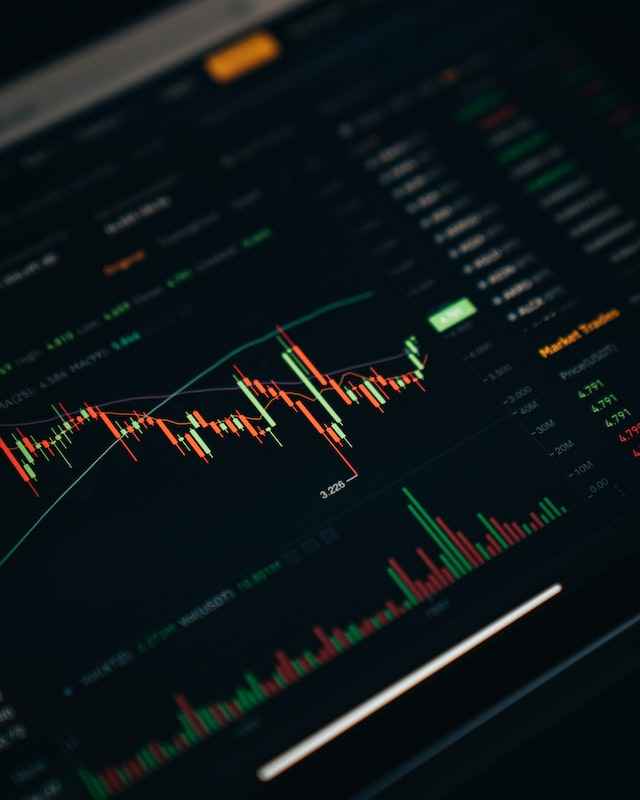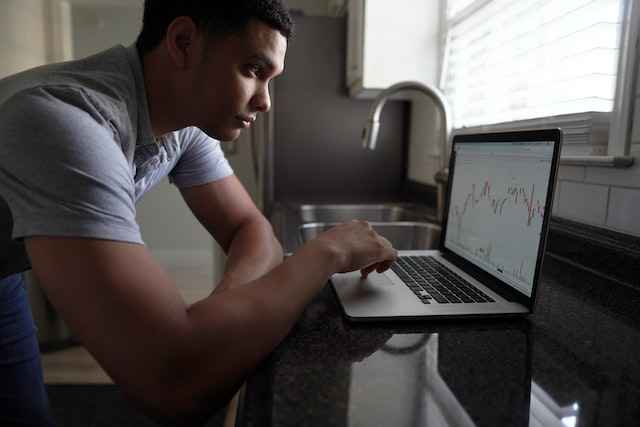In today’s economy, the perception that trading is a sector with a high barrier to entry is out of date. Even if you don’t have a lot of money, you can earn a living as a trader if you have passion and patience.
Do the US Stock exchange and Forex trading UK appeal to you? If so, then if you are willing to put in the time to study and research trading, you have a broad choice of options available to you.
Table of Contents
A Trading Breakthrough
As a consequence of technological advancements and increased trade volumes, several low-barrier-to-entry trading vocations have evolved. Sometimes no out-of-pocket money is needed. In other situations, you may need to pay a small amount upfront.
This is to show that you are serious about trading. With today’s financial markets so linked, there is always a market open for trading somewhere on the globe, and entry to many different overseas markets is simpler than ever.
It’s all about finding the right market and opportunity, so you can trade even if you have a full-time job or are a stay-at-home parent. Although trading is simple in theory, there are so many access points, and anybody can join the market, but your ultimate success is still up to you.
Depending on the route you choose, trading might be a full-time job, a side business, or a way to supplement your income.
Should You Quit Your Job to Invest?
It’s a prevalent misconception that experienced traders with excellent backgrounds and academic qualifications can only be found in investment banks. Another common misunderstanding is that trading demands a lot of money and time that you don’t have.
To work for an investment bank or on the trading floor of a major institution, you will most likely need connections or a substantial educational background that sets you apart.
Nonetheless, the focus of this article will be on how the average person can enter the trading industry and start making money, whether they have years of trading expertise or none.
You can conduct business from the convenience of your own home.
Trading from home is the first and most obvious option, given its versatility. Day trading stocks from home is one of the most successful industries, but it also needs a significant financial commitment.
This is because a trader who has been designated as a pattern day trader must always have at least $25,000 in trading capital.
If the trader’s account equity falls below a certain level (either by depositing cash or securities), he or she will lose the right to day trade.
You Should Consider Investing in Markets That Require Less Capital.
Currencies and currency markets
Traders should be aware of their options, such as easier-to-enter marketplaces that demand fewer cash and resources. Currency markets, often known as the foreign exchange (FX) market, are one such option.
You may open an account with as little as $100 and use leverage to obtain a large amount of money. If you are unable to trade during regular market hours, this market is available 24 hours a day, seven days a week.
An Examination of the CFD Market
Furthermore, the CFD (contract for difference) market has expanded. A CFD is a digital agreement between two parties in which neither party owns the underlying asset. As a result, earnings may be achieved at a lower cost than if the asset were owned.
The CFD market, like the foreign currency market, provides significant leverage, lowering the needed initial capital input. CFDs may also be used to trade stocks on the stock exchange. Despite the fact that the contract never really owns the stock, it allows for the realisation of profits or losses depending on the performance of the underlying stocks or indexes.
Despite the fact that high leverage implies the inherent risk of loss, even a trader with little starting capital may enter the market. When utilizing a lot of leverage, it’s critical to understand the risks you’re taking and have a sound trading plan in place before you begin trading.

Exclusive Contract Trading Firms
Proprietary trading businesses have increased in popularity as a consequence of their educational offers and affordable pricing structures. Working on a trading floor may appeal more than trading from home.
A day trader for a proprietary trading business is often an independent contractor rather than an employee of the firm. They do not get a salary but rather a part of the firm’s earnings from trading operations. The company supplies funds to the trader, or the trader utilises capital to conduct deals (and the risk is partially managed by the firm).
Working for a business takes away some of the stress of trading, but you still need to be self-disciplined.
Working for a firm may include being in the office during market hours, but other companies allow traders to work from home. Working for a trading business gives you the chance to get free training, trade with other successful traders, have access to funds, and have your performance tracked and reviewed.
Self-starters with suitable job experience and academic qualifications often seek self-starters. This is because the corporation may assess each trader’s risk and let those who aren’t doing well leave with a minimal overall effect.
In this kind of company, you get paid according to how well you do, generally as a proportion of your operational profit (profit before taxes and fees). The necessity for certain licenses is determined by the company’s structure.
Even though it is not needed, passing the Series 7 exam may enhance the number of organisations with whom you can trade. Choose a corporation whose techniques and culture are compatible with your own tastes, ambitions, and way of life.
Some of them demand personal financial resources. A simple web search will provide a list of proprietary trading businesses.

The Situation
After you’ve decided on the finest trading technique for you, the next step is important. If trading from home is your main aim, you’ll need to decide which markets to concentrate on depending on your available cash and personal preferences.
The next stage is to develop a thorough trading strategy (which is essentially a business plan) and to build your trading processes. The next stage is to research and assess different online brokers. Look for a guide or mentor to help you.
Lastly, you enter the trading market.

